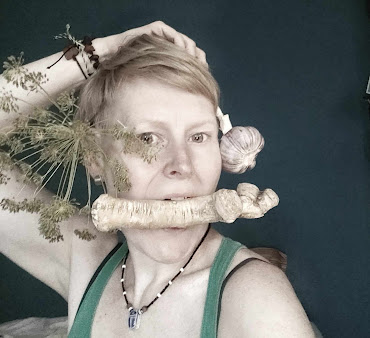folio : Three
from Viscera: Eight Voices from Poland
, edited by Mark
Tardi
from Untitled statement of poetics
The process of writing is an ordeal and a pleasure. I don’t believe in poetry, I don’t believe in its power, but I do believe in the slow reveal of words, as if I were holding a magnet under a piece of paper sprinkled with iron filings. When I drive a car, I see white lines, solid and dashed, crossbars, road signs, mile markers, trees intended for felling, high voltage poles, cars pulling over at McDonald’s and people rushing to the gas station for a pee, arguments at the checkout, crying, laughing. There is such an awful lot of it everywhere, and writing allows you to suddenly freeze the image, extract it and get busy sorting it out. In writing, I am naked; I do not hide. The strength of poetry is the lack of desire to camouflage weaknesses. But above all, to NOT KNOW.
Great discoveries attract people.
Were you the resident of
a small village
in
China’s Xiaoshi province who, according to the Daily
Mail,
on his way home from work
stopped to look at the
water receding on the
lake and saw the head of Buddha Gotama peeking out
from beneath the murky
surface? So while you were sleeping, I couldn’t help myself
and stared at you again.
No temples erected on a
rectangular plan with columns,
only micro-contacts with
elements of light.
Everything resting on the
air exhaled through the nose.
And suddenly, bam!
Inscriptions begrudgingly carved into the bones.
In the morning, dressed
in a duvet, I toddle onto the balcony to pour grain.
I see the day unfolding,
the body on which light falls
sparingly.
Like on a statue in a niche carved into a cliff face.
Or human remains at a burial site.
Translated from the Polish by Katarzyna Szuster-Tardi
from Viscera: Eight Voices from Poland,
edited by Mark Tardi
Litmus Press, 2024 :
reprinted with permission,
Hanna Janczak has published the collections Jeszcze ciszej (2018) and Lekki chłód (2015), for which she was nominated for the Gdynia Prize. She has published in widely respected journals in Poland, such as Chimera, Wizje, Arterie, Cegle, Helikopter, Dwutygodnik, and on the Karpowicz Foundation website, among others. In English translation, her work has appeared in The Sextant Review and Hunger Mountain. She is the founder of the Strasznego Chóru [Haunted Choir]. She has a son named Antoni. Katarzyna Szuster-Tardi is a translator. Book translations include Autobiografia śmierci by Kim Hyesoon (co-translated with Ewa Suh and Lynn Suh; Biuro Literackie, 2023, a finalist for the 2024 Ossolineum Award); Histeria by Kim Yideum (co-translated with Ewa Suh and Lynn Suh; Biuro Literackie, 2022); Polish Literature and Genocide by Arkadiusz Morawiec (Routledge, 2022); a selection of Don Mee Choi’s poetry into Polish in Odmiany Łapania Tchu (Dom Literatury, 2022); To Feed the Stone by Bronka Nowicka (Dalkey Archive Press, 2021); and the chapbook Codex of the Insane: Body and Related Matters by Bronka Nowicka (Toad Press/Veliz Books, 2021). Recent translations have appeared in Conjunctions, Hunger Mountain Review, Denver Quarterly, Washington Square Review, Michigan Quarterly Review, Tripwire, LIT and elsewhere. She earned her M.A. in English studies from the University of Łódź.



